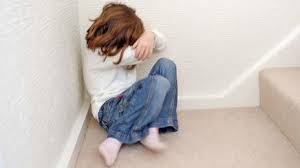
NSPCC Scotland reports sharp increase in emotional abuse referrals.
The NSPCC is experiencing a surge in the number of emotional abuse cases it is referring to the police and children's social work services in Scotland.
In 2013/14 the charity referred nearly 80 per cent more cases to local authorities across Scotland compared to the previous year, as a result of people contacting its helpline about the issue.
Of 320 contacts made to the NSPCC about emotional abuse in 2013/14, 217 of these cases were so serious they have been referred to local authorities for further action, compared to 122 the previous year (2012/13) – an increase of 78%.
Aileen Campbell, Minister for Children and Young People, said: “A secure, loving and nurturing environment is integral to a child's health, mental health and well-being. Helping children to develop the skills required to respond to life’s challenges will allow them to achieve their full potential.
"The recently passed Children and Young People Act sets out how seriously local and national government take the issue of our children’s welfare. Statistics like these are heart-breaking, but they do demonstrate that more of us recognise the immense damage potentially caused by neglect and the steps we are taking to help if we suspect a child is suffering."
The figures comes as the charity also revealed that its helpline, which takes calls from adults who are worried about a child, is being contacted by more people than ever before. More than 60,000 people from across the UK contacted the NSPCC helpline this year about a range of issues or concerns - an increase of 20% compared to last year.
Matt Forde, National Head of Service for NSPCC Scotland, said:
"Emotional abuse can cause real harm to children and it's encouraging that more people are becoming aware of it.
"We are now referring an unprecedented number of emotional abuse cases to social work services and the police, and we need to ensure these strained agencies are equipped and enabled to protect these children.
"This isn't about parents who don’t buy their children the latest gadgets or trainers this is about parents who consistently deny their children love and affection. Abuse is not just physical but emotional, and people need to be alive to whether children’s emotional needs are being met. Failure to do so can have lifelong consequences.
"With more people than ever before contacting us about child abuse and neglect, what we really need to do is work together to prevent this abuse happening in the first place."
What is emotional abuse?
Emotional abuse includes:
• disciplining a child with degrading punishments
• not recognising a child's own individuality and limitations by, for example, pushing them too hard or being too controlling
• exposing a child to distressing events or interactions, such as domestic abuse and substance misuse
• failing to promote a child's social development by, for example, not allowing them to have friends
• persistently ignoring a child
• being absent
• never expressing positive feelings towards a child
With the summer holidays fast approaching, and more people coming into contact with children, the charity is urging people to be extra vigilant to the signs of abuse and neglect.
Anyone who has concerns about a child can contact police and their local authority for support, or alternatively the NSPCC’s free 24 hour helpline on 0808 800 5000, help@nspcc.org.uk, by text on 88858 or by using an online reporting form. They can choose to remain anonymous if they wish.


 10°C
10°C
 10°C
10°C
 9°C
9°C